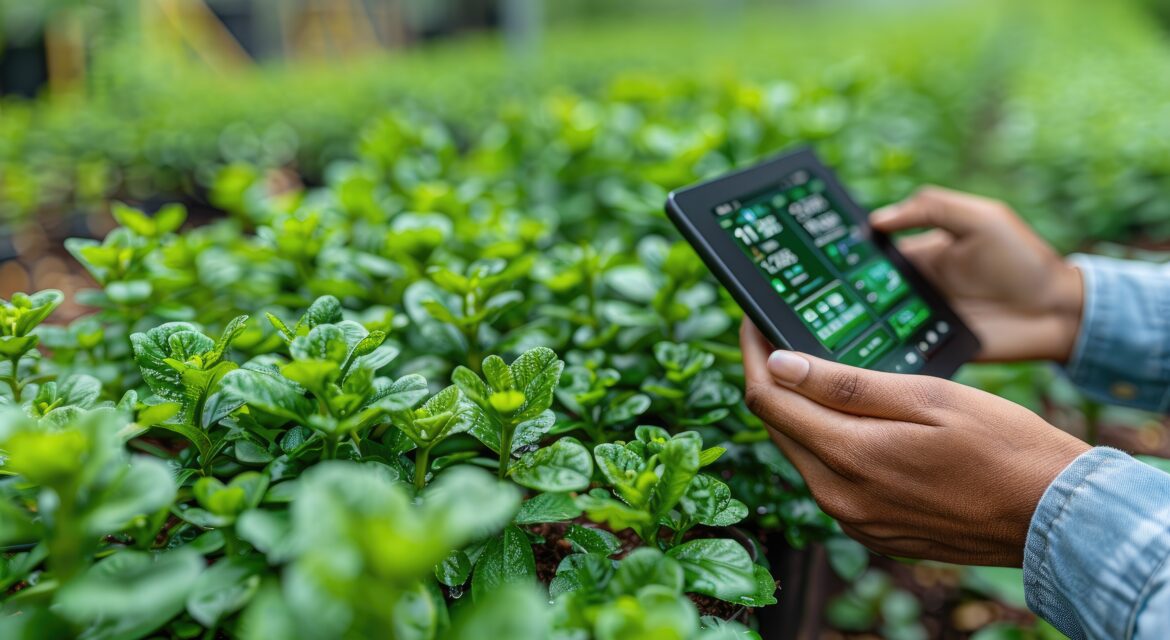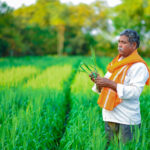No products in the cart.
 11 March 2025
11 March 2025How Smart Agri Inputs Are Changing the Game
The Rise of Smart Agri Inputs in Modern Farming
Agriculture is entering an era where technology and sustainability merge to create a smarter, more efficient farming system. Traditional methods relying on excessive water use, chemical fertilizers, and labor-intensive processes are being replaced by smart agri inputs—innovative solutions designed to optimize productivity while minimizing environmental impact.
With climate change intensifying and global food demand rising, the agricultural industry must embrace data-driven and eco-friendly technologies. Smart agri inputs such as AI-powered soil health monitoring, biofertilizers, precision irrigation, and climate-resilient seeds are leading the way in ensuring sustainable, high-yield farming.
This blog explores how smart agri inputs are changing the game, backed by global trends, research data, and real-world success stories.
1. AI-Powered Soil Health Monitoring – Data-Driven Farming for Higher Yields
Soil health is the foundation of sustainable agriculture, but traditional soil testing methods are often time-consuming and imprecise. AI-powered soil monitoring provides real-time data on nutrient levels, moisture content, and microbial activity, helping farmers apply fertilizers and irrigation more efficiently.
Global Trends and Growth
- AI-driven soil health solutions have increased farm productivity by 35% globally.
- Farms using IoT soil sensors have reduced fertilizer use by 40% while maintaining high yields.
Case Study – AI Soil Health Mapping in the U.S.
A wheat farm in the U.S. integrated AI-driven soil sensors, analyzing real-time nutrient availability to adjust fertilization schedules.
- Impact: Fertilizer costs dropped by 20%, while wheat yields improved by 15%.
Real-World Example – Smart Soil Analytics in India
Indian farms use satellite-connected soil sensors to determine optimal crop selection and nutrient management.
- Result: Crop mismatches decreased by 30%, leading to higher land productivity.
Why It’s a Game-Changer
AI-powered soil analytics enable precision farming, reducing costs and optimizing crop production.
2. Biofertilizers – Replacing Chemical Fertilizers for Sustainable Farming
Chemical fertilizers enhance crop yields but contribute to soil degradation and water pollution. Biofertilizers offer an eco-friendly alternative, using beneficial microorganisms to improve soil fertility and nutrient absorption.
Global Trends and Growth
- The biofertilizer market is projected to reach $20 billion by 2030, growing at a CAGR of 12%.
- Farms switching to biofertilizers have seen 30% higher soil organic matter and reduced reliance on synthetic inputs.
Case Study – Nitrogen-Fixing Biofertilizers in Brazil
Soybean farmers in Brazil replaced synthetic fertilizers with microbial biofertilizers, which convert atmospheric nitrogen into plant-usable nutrients.
- Impact: Crop productivity increased by 25%, while input costs declined by 20%.
Real-World Example – Mycorrhizal Biofertilizers in Germany
German wheat farms use mycorrhizal fungi-based biofertilizers, enhancing phosphorus uptake and root development.
- Result: Soil phosphorus levels increased by 40%, reducing dependency on chemical fertilizers.
Why It’s a Game-Changer
Biofertilizers restore soil health, boost microbial diversity, and eliminate chemical runoff into water bodies.
3. Precision Irrigation – Smart Water Management for Maximum Efficiency
Water scarcity is a growing global challenge, making smart irrigation technologies essential for efficient water use. Precision irrigation delivers the exact amount of water needed, minimizing waste and improving crop hydration.
Global Trends and Growth
- Smart irrigation systems have reduced agricultural water usage by 30% worldwide.
- Farms using AI-driven water models have seen 25% higher yields while using 50% less water.
Case Study – Drip Irrigation in Israel
Israeli farmers implemented AI-powered drip irrigation, reducing water waste and increasing efficiency.
- Impact: Water usage decreased by 60%, while crop productivity improved by 20%.
Real-World Example – AI-Based Irrigation in India
Indian farmers are adopting AI-driven water management models, improving efficiency in drought-prone areas.
- Result: 5 million farmers now have stable water supplies, reducing dependence on rainfall.
Why It’s a Game-Changer
Smart irrigation maximizes water efficiency, reduces costs, and ensures climate-smart farming.
4. Climate-Resilient Seeds – Securing Food Production Amid Climate Change
Climate change is disrupting agricultural productivity, making climate-resilient seeds essential for food security. These seeds are engineered to withstand drought, floods, and pest infestations.
Global Trends and Growth
- The climate-resilient seed market is projected to grow by 18% annually, ensuring more stable food production.
- Farmers adopting drought-tolerant and salt-resistant crop varieties have reduced crop losses by 40%.
Case Study – Drought-Resistant Corn in Africa
African farmers growing drought-resistant corn have maintained stable yields despite unpredictable rainfall.
- Impact: Corn production increased by 30%, ensuring food security in water-scarce regions.
Real-World Example – Flood-Resistant Rice in Bangladesh
Bangladeshi farmers are cultivating submergence-tolerant rice varieties, allowing them to continue farming despite rising sea levels.
- Result: Crop yields improved by 25%, securing food supply for coastal regions.
Why It’s a Game-Changer
Climate-resilient crops protect farmers from climate risks and improve agricultural sustainability.
Conclusion – Smart Agri Inputs Are Revolutionizing Modern Farming
The future of agriculture depends on innovation and sustainability. Smart agri inputs—AI-driven soil monitoring, biofertilizers, precision irrigation, and climate-resilient seeds—are transforming farming practices worldwide.
Farmers who adopt these technologies will gain a competitive advantage, ensuring higher efficiency, lower costs, and improved environmental outcomes. The transition from traditional to data-driven, sustainable agriculture is happening now. The question isn’t if farming will evolve—it’s how quickly and effectively the industry can scale these innovations.
The future of farming is here. Are you ready to lead the change?
Join the Smart Farming Revolution with Invade Agro
Invade Agro provides cutting-edge solutions to help farmers integrate smart agri inputs and precision agriculture technologies.
- AI-Powered Soil Analytics
- Biofertilizers for Sustainable Crop Growth
- Smart Irrigation & Climate-Resilient Seeds
Take the next step in sustainable farming. Contact us now to integrate smart agri inputs into your farming practices and drive the future of food production. The time to act is now—be at the forefront of the agricultural revolution!
[xs_social_share]



